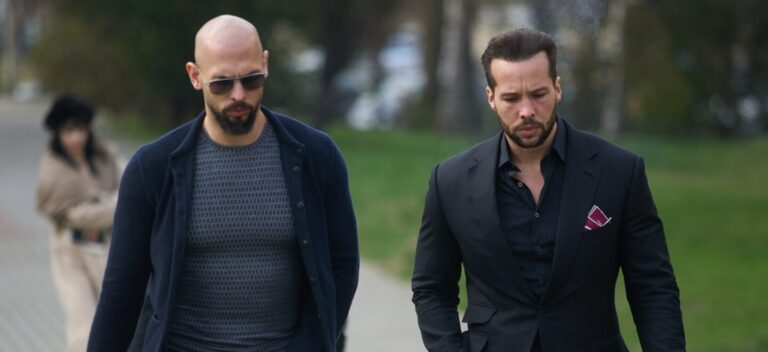What is Modern Slavery and Trafficking?
Modern slavery and trafficking can take different forms. It can include:
- Sexual, such as forced prostitution;
- Forced labour, including working for no pay or very low wages;
- Forced marriage;
- Forced criminality, such as being forced to carry drugs or to steal;
- Forced organ removal;
- Domestic servitude, including forced housework, or caring for children.
You may have experienced emotional and / or physical control or threats of violence. A trafficker often has a lot of control over their victim’s life. They may control your wages, the address where you live, your passport, and whether you can contact your friends and family in the outside world. Modern slavery and human trafficking can be carried out by someone who you trust, like an employer or a friend.
What is human trafficking?
Human trafficking is the illegal trade of humans with the purpose of exploitation for the financial or personal gain of the trafficker. You may be aware of some of the activities involved in human trafficking, including forced labour, sexual slavery and commercial sexual exploitation. Traffickers will often use threat, force, deception and coercion to gain compliance from the victim, while abduction is also common.
Some examples of human trafficking include victims being groomed and forced into sexual exploitation; being tricked into accepting job offers that result in forced labour in places like building sites, farms and factories; and children being forced to beg for money. Unfortunately, many people who find themselves caught up in human trafficking are simply trying to escape poverty or hardship, or desperately trying to support their families.
While a lot of human trafficking occurs across borders, it can occur domestically too. It can also happen in any community and victims can be any age, race, gender, or nationality.
What is sex trafficking?
Sex trafficking is a form of human trafficking for the purpose of sexual exploitation in return for financial or personal gain. Victims are forced or coerced into taking part in commercial sex acts, such as pornography, prostitution and sexual performance. Violence, threats, deception and abduction are often used in order to gain compliance from the victim so that they meet the trafficker’s demands.
The crime encompasses the recruitment, transportation, transfer, harbouring, receipt or soliciting of persons who are then used for commercial sexual acts. Transportation across borders doesn’t need to take place for it to be considered trafficking. Minors under the age of 18 engaged in commercial sex are automatically considered victims of human trafficking, regardless of whether force or coercion was involved.
It’s important to know that, while many victims are women and girls, men and boys may also be impacted by sexual exploitation.
Reporting trafficking to the police
If you have been a victim of people trafficking, or you suspect this of a friend or relative, then you should report this to the police immediately. Trained police officers who specialise in working with victims of people trafficking can meet with you at a safe place of your choice. They can also refer you to the National Referral Mechanism, and through this, protect you in a safe house. Whilst at a safe house, you can get specialist advice on the options you have, including about immigration, housing, employment, and compensation.
To find out more about reporting or disclosing modern slavery, people trafficking and abuse, and the information that the police will want to know, please read our guide.
Making a claim
-
Against an individual trafficker
If you are a victim of human trafficking, you may wish to consider a claim against the individual or individuals who committed modern slavery offences against you. Before we start a claim, we will investigate whether this person has enough assets to pay you compensation.
Often, an individual may not have any assets. It may be that we cannot locate the individual, or that they are no longer alive; but this does not mean you cannot bring a claim. We can explore other options if a claim against the individual is not possible. We can also protect your anonymity. This means that the trafficker will not receive details about, for example, where you live now. -
Against an organisation
It could be possible to bring a claim against the organisation responsible for the actions of one or more of its employees or agents. We will investigate to establish whether the organisation is responsible for the actions of the trafficker. We will gather all necessary evidence to prove how the trafficker used their position within the organisation to commit their crimes against you. It is also possible to bring a claim against the organisation by proving that their negligence allowed the human trafficking to take place. If you told someone who was part of the organisation, and they failed to act on your information, then this is classed as negligence. You may also bring a negligence claim against the organisation if it knew or should have known what was happening or knew that the person was dangerous and failed to intervene to protect you. This could include social services.
-
Criminal Injuries Compensation Authority
The Criminal Injuries Compensation Authority (‘CICA’) is a government-funded scheme which allows victims of violent crime to obtain compensation. If we are not able to bring a civil claim against an individual or organisation for you, then an application to CICA may be an alternative route. Bolt Burdon Kemp can help you through the CICA application process, ensuring you meet the criteria to successfully apply for compensation through the CICA. Our experienced solicitors usually work on a no-win, no-fee basis, and we will assess your claim for free. Contact us now. You can find out more about making an application to the CICA.
What we need to show
To make a successful claim we must be able to show:
1. That the trafficking took place:
– If you have received a positive decision that you are a victim of people trafficking (also known as ‘positive conclusive grounds’, this will help us prove your case that the trafficking happened.
– If your traffickers have been found guilty in a criminal court, we can use this to show what happened.
If neither of these apply to you, we can try to prove that the incident(s) took place. We can do this by taking supportive statements, obtaining expert evidence and securing other records which will help us prove your claim.
2. That you have suffered harm and should be awarded compensation:
Our expert team will show the impact that the trafficking has had on you, by speaking to friends and family who can tell us how the experience you had has affected you. We will also ask a medical expert (a consultant psychiatrist experienced in helping victims of trafficking and survivors of abuse) to prepare a report explaining the damage caused. We will use all this evidence to help secure the highest level of compensation possible for you.
How can Bolt Burdon Kemp help?
Our specialist solicitors in the abuse team can help you make a claim if you have been a victim of modern slavery and trafficking. We understand that talking about what happened to you can be extremely distressing. We will work with you to ensure that this is limited as much as possible.
We have a team of male and female solicitors and so the choice is yours as to whom you feel most comfortable working with throughout the lifetime of your claim.
We know that no amount of money will ever be enough to compensate you for what has happened to you, but our team will work tirelessly to ensure that you obtain the justice that you deserve. This will include obtaining admissions of responsibility where possible, securing interim payments of compensation to allow you earlier access to treatment and also access to specialist experts who will help us to assess how the experience has affected your life, and what help is available for you.
Get in touch with our team of leading lawyers for a completely confidential consultation to find out how we could help you. If we can help you and you decide to instruct us, then we will guide you through all aspects of the civil claims process so you feel fully supported with our team of leading lawyers.
Funding the costs of your case
We can advise you on the best way to fund your case, depending on the type of legal claim we can bring for you.
Generally, if we are not able to act for you using Legal Aid, we will be able to act for you on a no-win-no-fee basis.
Are there any time limits for bringing a claim?
Strictly speaking, a civil claim for personal injury should be brought within three years of the date of the incident. If it occurred when you were a child, you have until your 21st birthday to bring a claim for compensation. However, the courts appreciate and recognise in cases involving control, manipulation and abuse, which is often the case for victims of people trafficking, that it might not be possible for someone to have reported what happened to the police or to seek advice about their legal options earlier. As a result, our clients are often out of time to bring their claim.
There are many reasons as to why it might not be possible to bring a claim within time, for example, due to mental health conditions or feeling ashamed or embarrassed at what has happened to you. This is completely normal and completely understandable, given what you have experienced.
The court has discretion to extend the time limit to start your claim, and also to allow claims to be brought outside this time limit, even if many years have since passed. We will work with you to show the court why your claim should be allowed to begin and why you should be awarded compensation for what has happened to you.
At Bolt Burdon Kemp we are proud to have represented clients whose claims have succeeded despite being decades out of time, and we have achieved justice for them as a result.




















